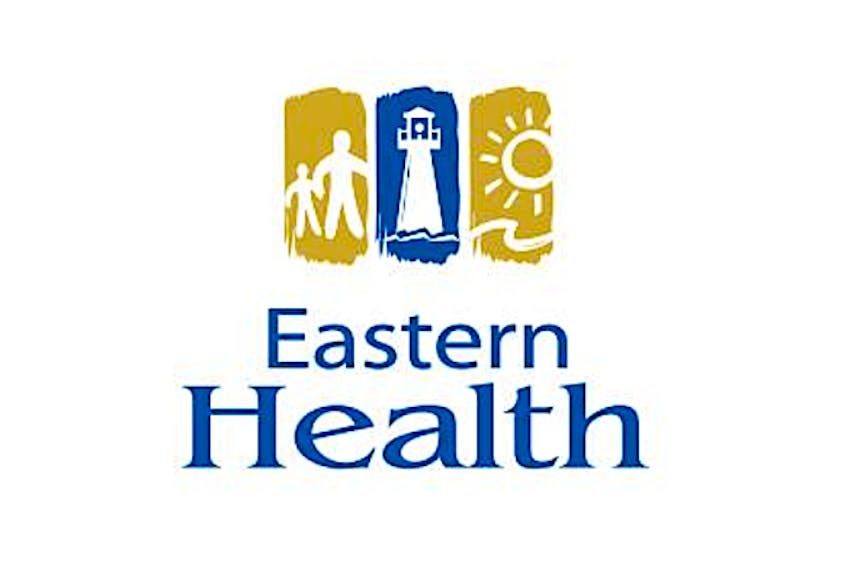Infectious syphilis cases in the eastern region of Newfoundland and Labrador are on the rise, says Eastern Health, which issued an alert Tuesday about the sexually transmitted disease.
Eastern Health said people need to pay attention to safer sex practices, including the use of condoms and oral dams, and routine testing for sexually transmitted infections.
While rates of syphilis infection declined in 2016, a recent trend indicates a steep increase in infectious syphilis rates. A total of 42 infectious syphilis cases were confirmed between Jan. 1, 2017, and Feb. 9 this year, Eastern Health said.
Regional medical officer of health Dr. Claudia Sarbu told The Telegram that prior to 2014, cases were few — one to four or five a year. But in 2014, there were 24, followed by 32 in 2015.
Then in 2016, the number dropped to 21.
Seven of the syphilis cases were reported so far in 2018. These cases are being seen in both males and females, age 15-63 years, Eastern Health said. About 24 per cent of cases were co-infected with human immunodeficiency virus (HIV) and 13 cases were diagnosed with neurosyphilis, with complications such as vision and hearing loss, Eastern Health said.
Syphilis is a bacterial sexually transmitted infection (STI) contracted through unprotected anal, vaginal or oral sex. It can cause serious and permanent damage to the body if untreated, Eastern Health noted. Symptoms may first appear 10-90 days after an individual becomes infected, with the average period of time being 21 days. While some people may not experience any symptoms, syphilis can produce different symptoms at each stage of infection, including: an open sore at the point of infection (genital area, anus, mouth or lips), flu-like illness, muscle aches and pains, fatigue, and/or a rash on the chest, back, palms of hands and bottoms of feet.
“Get tested regularly, use condoms, discuss with your partner about the STI status and at the end of the day go and talk to your primary care provider about STI testing. This needs to be a regular part of medical assessments,” Sarbu said.
The numbers for the other health regions — Eastern Health is by far the largest — are sporadic, about a case a year, Sarbu said.
She wouldn’t describe the numbers released Tuesday as an epidemic, but rather preferred to call it a spike. Otherwise, the public might panic, she said, adding there is no need to panic.
She said that in 2015, there was a massive awareness campaign with community organizations and that led to both increased testing and contributed to a decline in the numbers for 2016. But that ended, although an ongoing strategy is being worked on.
Eastern Health offered two consecutive years of STI testing blitz and this year will focus on the anonymous population.
The rise of the disease — which had once pretty much disappeared— can be contributed to a change in sexual behaviour that led to more risky practices and away from the safe sex message of the 1980s and early ’90s amid the deadly AIDs crisis.
As treatments evolved for HIV — the virus that causes AIDS —the scare that drove people to practice safe sex more diligently began to abate.
“(Treatment and longevity) made the public not to fear HIV,” Sarbu said.
“It was a deadly disease. It is not deadly anymore, so people are not using the protection.”
Nowadays, there are more avenues — besides bars and other meeting places — to hook up for casual sex in the form of websites like Grindr, Tinder and other dating sites.
But these sites have also been used to get the message out about the need for testing, and for safe sex, Sarbu said.
Health officials will turn again to the online community to try to gauge the best way to send a message of prevention and the need for testing.
Officials are also looking to develop an online course for family doctors, as the initial symptoms of syphilis can be easy to overlook, Sarbu said. They can mask a flu, or in the case of a rash, an allergy.
Also, people unaware they have syphilis in its initial stages may not be concerned about the symptoms, and therefore aren’t aware they are passing it on, Sarbu said.
She said caught in its primary and secondary stages, syphilis is treatable with antibiotics and those are the cases that have mostly been seen here. Later stages can be deadly — neurosyphilis (attacking the brain), cardio-vascular syphilis or destroying the tissue of any organ.
Sarbu noted there remains a stigma of embarrassment around testing, particularly in small communities, and people may be reluctant to talk to their family doctor or nurse practitioner about testing.
“If we could (only) change the culture of sexual health,” she said.
Gerard Yetman, executive director of the AIDS Committee of Newfoundland and Labrador, told The Telegram based on the size of this province, the spiking rates signal a syphilis epidemic is here.
Yetman said he first became aware of an increase in cases a few weeks ago and learned the numbers last week. There is an effort to renew an awareness campaign, he said.
“Safe sex is a message that needs to be retold over and over,” Yetman said.
Yetman noted that HIV — the virus that causes AIDS — is more easily contracted when another sexually transmitted disease is present.
HIV rates are also spiking — where previously there were about three cases a year, that has climbed to 15 or 16 cases a year, he said.
People think HIV is cured because of the treatments that are available, Yetman said.
“A lot of people think (HIV) is not a big deal, that it’s treatable and you can live a long, happy life,” he said.
“Even though treatments are out there, it’s still difficult. People are still sick.”
The AIDS committee, in step with Eastern Health, had run the syphilis outbreak awareness campaign and held pop-up clinics where people could get tested, and saw a good turnout.
The AIDS committee also has a campaign alerting seniors to the need for safe sex.
If an individual has had unprotected anal, oral or vaginal sex and are concerned they may have contracted syphilis, Eastern Health is urging them to see a health care professional and get tested as soon as possible. The health authority also noted all sexually active people need to be tested for STIs as part of their regular health care screening.
For more information, people can talk to a health professional, call Planned Parenthood Newfoundland and Labrador at 1-877-666-9847, contact Eastern Health’s sexual health clinic at 709-752-4882 or email[email protected] or go online at http://www.easternhealth.ca/WebInWeb.aspx?d=3&id=1819&p=1552.
Twitter: @bsweettweets
Earlier story:
Infectious syphilis cases in the eastern region of Newfoundland and Labrador are on the rise, says Eastern Health, which issued an alert Tuesday about the sexually transmitted disease.
Eastern Health said people need to pay attention to safer sex practices, including the use of condoms and oral dams and routine testing for sexually transmitted infections.
While rates of syphilis infection declined in 2016, a recent trend indicates a steep increase in infectious syphilis rates. A total of 42 infectious syphilis cases were confirmed between Jan. 1, 2017 and Feb. 9 this year, Eastern Health said.
Seven of these cases were reported so far in 2018. These cases are being seen in both males and females, age 15-63 years. Some 24 per cent of cases were co-infected with human immunodeficiency virus (HIV) and 13 cases were diagnosed with neurosyphilis, experiencing complications such as vision and hearing loss, Eastern Health said.
Gerard Yetman, executive director of the AIDS Committee of Newfoundland and Labrador, told The Telegram based on the size of this province, the spiking rates signal a syphilis epidemic is here.
He said he first became aware of an increase in cases a few weeks ago and learned the numbers last week. There is an effort to renew an awareness campaign, he said.
“Safe sex is a message that needs to be retold over and over,” Yetman said.
Yetman noted that HIV — the virus that causes AIDS — is more easily contracted when another sexually transmitted disease is present.
HIV rates are also spiking — where previously there were about three cases a year, that’s climbed to 15 or 16 cases a year, he said.
The problem, said Yetman is that people think HIV is cured because of the treatments that are available. (In the 1980s and early ’90s AIDs was pretty much a death sentence).
“A lot of people think (HIV) is not a big deal, that it’s treatable and you can live a long, happy life,” Yetman said.
“Even though treatments are out there, it’s still difficult. People are still sick.”
Around 2016 into 2017, the AIDS committee in step with Eastern Health had run a syphilis outbreak awareness campaign and held pop-up clinics where people could get tested and saw a good turnout.
The AIDS committee also has a campaign alerting seniors to the need for safe sex.
Now Yetman said the committee is looking at a new strategy with Eastern Health to get the message out, as safe sex is a prevention for both syphilis and HIV.
Syphilis is a bacterial sexually transmitted infection (STI) contracted through unprotected anal, vaginal or oral sex. It can cause serious and permanent damage to the body if untreated, Eastern Health noted. Symptoms may first appear 10-90 days after an individual becomes infected, with the average period of time being 21 days. While some people may not experience any symptoms, syphilis can produce different symptoms at each stage of infection, including: an open sore at the point of infection (genital area, anus, mouth or lips), flu-like illness, muscle aches and pains, fatigue, and/or a rash on the chest, back, palms of hands and bottoms of feet.
If an individual has had unprotected anal, oral or vaginal sex and are concerned they may have contracted syphilis, Eastern Health is urging them to see a health care professional and to get tested as soon as possible. The health authority also noted all sexually active residents to be tested for STIs as part of their regular health care screening.
For more information on people can talk to a health professional, call Planned Parenthood Newfoundland and Labrador at 1-877-666-9847, contact Eastern Health’s sexual health clinic at (709) 752-4882 or email [email protected] or go online at http://www.easternhealth.ca/WebInWeb.aspx?d=3&id=1819&p=1552









